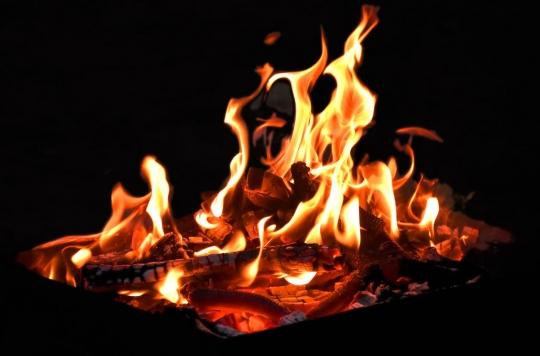The air has deteriorated in Greece since the start of the financial crisis. The fault of a massive use of wood heating, cheaper and above all less taxed, but dangerous for health.

With the financial crisis, the air in Greece has become more polluted. An association that seems absurd, but very real. According to a study, published on December 19 in Environmental Science & Technology, air pollution has increased since the Greeks fired with wood.
An economical solution
We know the economic and social effects of a crisis on the inhabitants. But we often overlook its impact on the environment. The current situation in Greece reminds us of this. The unemployment rate rose to 27% in 2013. At the same time, heating gas and fuel prices have continued to increase. Since the start of the financial crisis in 2009, they have almost tripled according to the study. “The problem is that economic hardship has forced residents to burn low-quality fuels, such as wood or garbage, which pollutes the air,” says lead author of the study, Constantinos Sioutas. Wood is not expensive, which is why so many Greeks are turning to this heating solution for the winter. But its role in air pollution is not negligible.
Five times more organic compounds
The air quality has deteriorated considerably in Greece since 2009. The researchers collected air samples over a period of 2 months during the winters of 2012 and 2013. Several elements emerged from their analysis. Fine particles (2.5 microns in diameter) increased by 30% between these two periods, well above the threshold recommended by the US Environmental Protection Agency (EPA). However, a high level of fine particles increases the risk of heart disease and respiratory problems. These particles can indeed reach the deepest tissues of the lungs thanks to their small size. On average, the study noted, the peak concentration was in the evening, when most people heat their homes.
Carcinogenic organic compounds are not to be outdone. Analysis of the air samples revealed the presence of five times more polycyclic aromatic hydrocarbons (PAHs) between 2012 and 2013. They are emitted during the combustion of wood. Other compounds, such as levoglucosan, mannose and galactose, have doubled or even quintupled. The presence of these elements indicates that biomass (wood or waste) has been burned.
To limit the harmful effects of wood combustion, the authors of the study ask public authorities and local agencies to put in place control strategies, in particular by spreading the use of natural gas and catalyzed wood stoves. This time, the question does not only concern countries in crisis. In France, where two-thirds of the population uses wood heating, 50% of appliances should be replaced.
.















